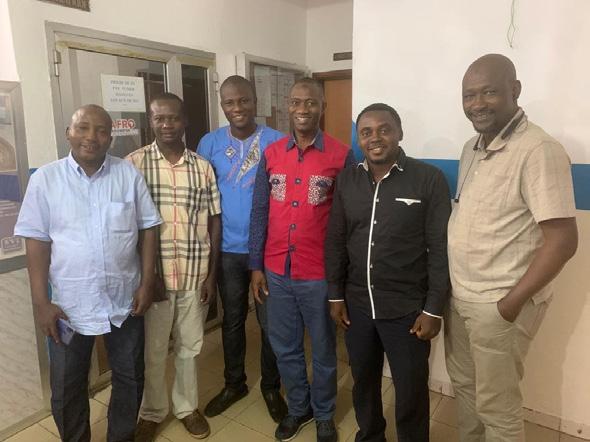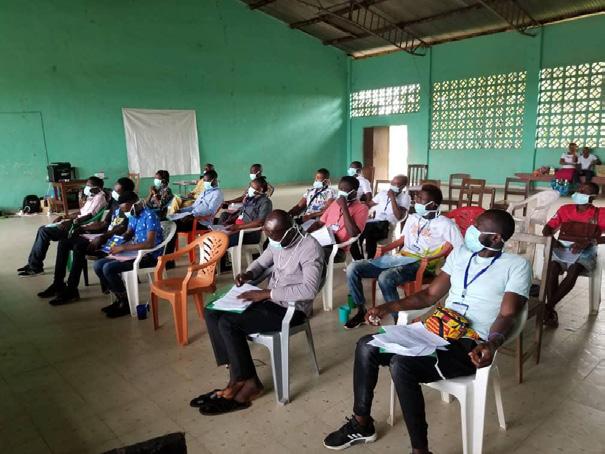
2 minute read
APRIES 2020 Program Highlights, Future Plans
by Nnenne Onyioha-Clayton, APRIES program manager, and Laurie Anderson
Despite delays due to the COVID-19 pandemic, in 2020 the African Programming and Research Initiative to End Slavery (APRIES) built stronger partnerships in Guinea (GN) and Sierra Leone (SL), and started new work in Senegal (SN). The APRIES’ research partners in Sierra Leone and Guinea began data collection. APRIES also held a global competition to select implementing partners for its anti-child trafficking work in those nations. World Hope International is now the partner in Sierra Leone while Sabou Guinea and International Organization for Migration are the partners in Guinea.

Project enumerators journeying day and night to gather research data in Kono District, Sierra Leone.
Photo by Umaru Fofanah
Country coordinators Umaru Fofanah (SL) and Ansoumane Bangoura (GN) joined the APRIES team in July. They have made great strides in developing relationships with stakeholders in government, communities, and NGOs. In September, Aminata Diagne Barre joined APRIES as country coordinator for Senegal. Barre engaged with a wide spectrum of key stakeholders, and with them laid down strong foundations for collaboration on APRIES’s anti-trafficking work.

APRIES and Guinea partners from SVI at a Training of Trainers. L-R: Bah Ousmane, Yumba Inabanza, Sankhon Fodé Naby, Dr. Barry Aliou, Bangoura Ansoumane, and Thierno Malick Diallo.
Photo by Ansoumane Bangoura (taken before March 2020).
APRIES also launched the Prevalence Reduction Innovation Forum (PRIF). The project will test, compare, and document the robustness of various methodological approaches in human trafficking prevalence research, and build the capacity of research teams around the world. In May APRIES co-hosted the virtual PRIF with the Department of State’s Trafficking in Person (TIP) Office that drew more than 1,000 research and policy experts from around the world. APRIES selected seven research teams to implement at least two prevalence estimation methodologies on the same target population in a restricted geographic sector in Brazil, Costa Rica, Morocco, Pakistan, Tanzania and Tunisia.
TIP awarded APRIES an additional $4 million in September to supplement research in the aforementioned countries and help expand efforts in Sierra Leone, Guinea and Senegal.
The APRIES office also created a document on statistical definitions of human trafficking to guide researchers seeking to measure the prevalence of human trafficking.

APRIES partners Conflict Management and Development Associates (CMDA) in Sierra Leone training enumerators and supervisors to collect data.
Photo by Umaru Fofanah.
Finally, in collaboration with Columbia University/WZB Berlin Social Science Center, APRIES began working on a meta-analysis—the first of its kind—that will allow researchers to combine knowledge from the seven studies to understand the relative effectiveness of the different prevalence measurement strategies.
APRIES’ goals over the next few years include establishing the Center on Human Trafficking Research and Outreach (CenHTRO) at UGA in early 2021, as well as establishing small research hubs in Guinea, Sierra Leone and Senegal. The hubs will consist of three people with expertise in research, policy, and programming in the field of human trafficking. “The smaller centers will provide information, resources and coordination for locally-based anti-trafficking personnel, who in turn will advise APRIES members and its implementing partners,” said David Okech, APRIES director.










